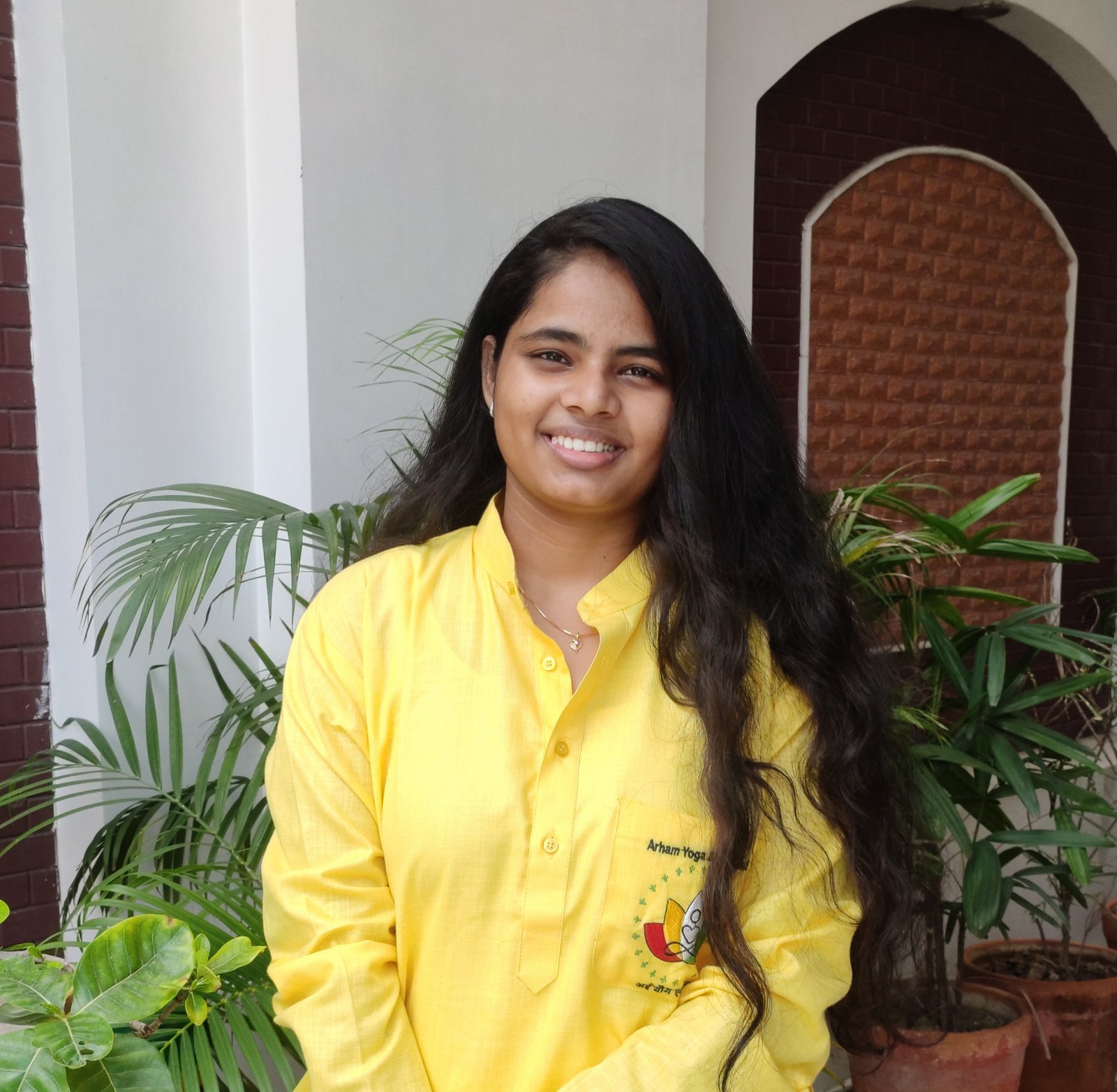

Academic Classes / Class 8 Tuition / ICSE / BIOLOGY-8 / BIOLOGY-GRADE-8-ICSE
Ankita Jain
Masters of Science from Teerthanker mahaveer university
Student's Reviews
By Several Parameters
Biology is the branch of science which deals with the study of living organisms. The ICSE Class 8 Biology syllabus covers topics such as transport of food and minerals in plants, reproduction in plant and animals, ecosystems, and human body-endocrine, circulatory and nervous system. The syllabus is designed to help you understand the basic concepts and principles of biology, and to develop your skills of observation, experimentation, and analysis. The syllabus also aims to foster your curiosity and interest in the natural world, and to appreciate its diversity and interdependence.
For attending this course, prior knowledge of Grade-7 Biology is required, this course assumes that students have prior experience with all the topics of Biology of Grade-7. This is not an introductory class for absolute beginners on Biology of Grade-7. Participants should already be familiar with the basic learning objective.
| Course | Fee per Class (In KlassCoins) | Duration | Type |
|---|---|---|---|
| BIOLOGY-GRADE-8-ICSE | 270 | 11 Months | Indiviual Classes |
Hello, I'm Ankita Jain, a biology educator based in Muzaffarnagar, Uttar pradesh. I hold a B.Sc. degree in Medical lab technology from Hemwati nandan bahuguna university, garhwal and pursuing M.Sc. Medical Biochemistry from Teerthanker mahaveer university, moradabad, with 02 years of teaching experience. My commitment to fostering a dynamic learning environment has consistently contributed to student's success. I am excited to bring my passion for education and to continue with a positive impact in the lives of my students.
Area of Expertise: Expert in medical studies and clinical cases, with a focus on fostering critical thinking and communication skills in students.
Achievements: Published educational article, a silver medalist in my undergraduate studies alongwith a first division holder in first and second year of my post graduate studies and received a recognition for outstanding student engagement.
Professional Career Goals: To inspire a love for learning, cultivate a supportive classroom environment, and contribute to the educational advancement of students.
Hobbies and Interests: Enthusiastic reader, dedicated to continuous professional development, a dancer, social worker and music listener.
-
Subject Details:
I specialize in tutoring biology to the students of grade 8-12 from CBSE & ICSE curriculum and can take both 1-1 private class or a group class depending on your comfort. I had a experience of tutoring to the students of physiotherapy, nursing and medical college. I believe in the power of education to inspire and empower students. My mission is to cultivate a love for learning by creating a engaging classroom environment. Let's embark on a journey of knowledge together!
Soft Skills: Effective Communication, adaptability, creativity, team collabration, problem solving and empathy.
Worksheets/Assignments Creation:
- Extensive experience in developing comprehensive worksheets and assignments tailored to curriculum objectives.
- Proficient in integrating technology for interactive and engaging online assignments.
- Received positive feedback on the effectiveness of designed materials in promoting student understanding and participation.
-
Book Published Details:
Not yet.
-
Language Known:English, Hindi
-
Total Experiance:2 Years
-
Listening & Questioning Skill:Excellent
-
Reading Skill:Excellent
-
Writing Skill:Excellent
-
Presentation Skill:Excellent
-
Online classes Experiance:60 hours
-
Award Recg:
A topper of biology and physical education in 12th standard as well as a silver medalist in my undergraduate studies continuing with a first division holder in first and second year of my post graduate studies.
-
Research Work:
Published an article on a medical related topic " Study of renal profile parameters in hypothyroidism" in a pubmed indexed journal named International Journal of Scientific Research.
Degree: Bachelors of Science - University: Hemwati Nandan Bahuguna University
Degree: Masters of Science - University: Teerthanker mahaveer university
Degree:
Biology is the branch of science which deals with the study of living organisms. The ICSE Class 8 Biology syllabus covers topics such as transport of food and minerals in plants, reproduction in plant and animals, ecosystems, and human body-endocrine, circulatory and nervous system. The syllabus is designed to help you understand the basic concepts and principles of biology, and to develop your skills of observation, experimentation, and analysis. The syllabus also aims to foster your curiosity and interest in the natural world, and to appreciate its diversity and interdependence.
-
Learning Objectives:
UNIT 1: Transport of food and minerals in plants
UNIT 2: Reproduction in plants and animals
UNIT 3: Ecosystems
UNIT 4: Human Body: Endocrine, Circulatory, and Nervous System
UNIT 5: Health and Hygiene
UNIT 6: Food Production
-
Course Outline:
UNIT 1: Transport of food and minerals in plants
- Diffusion – its definition;
- Osmosis – its definition, examples, semi-permeable membrane; active transport; root pressure;
- Transpiration – its definition, importance and the factors affecting transpiration.
- Structure and the function of the Xylem and Phloem in detail;
- Importance of minerals: macro and micro-nutrients; three deficiency diseases caused by the lack of these essential nutrients.
UNIT 2: Reproduction in plants and animals
Plants
- Sexual reproduction in the Plants:
- Binary fission, fragmentation, budding, spore formation, vegetative propagation, artificial propagation by the tissue culture (basic process along with the suitable example of each)
- Sexual reproduction in the Plants:
- Review of parts of a typical flower (its 4 whorls and their structure and functions)
- Pollination: self and cross;
- Agents of pollination: the three characteristics of plants pollinated by insects, wind and water (with examples). Characteristics of the flowers of each kind.
- The fertilisation process, in brief, is represented by a flow chart.
- Mention of artificial pollination.
Animals
- Sexual reproduction in humans:
- Main organs of the male and female reproductive system
UNIT 3: Ecosystems
- Understanding ecosystems: definition, the interaction between biotic and abiotic factors.
- Biotic components consist of producers, consumers and decomposers. Meaning of food chain. Food web and pyramid of numbers.
- Interdependence between organisms: symbiosis, parasitism and predation.
- A brief account of the abiotic or non-living components such as air, water, soil and climatic factors such as sunlight, humidity temperature and wind;
- Only forest ecosystems with their flora and fauna are taught.
UNIT 4: Human Body: Endocrine, Circulatory, and Nervous System
Endocrine system
- Two types of glands- exocrine and endocrine (the basic concept and difference);
- Hormone (its definition).
- Hormonal glands – (thyroid, pancreas, adrenal, pituitary); location and function of each.
- The following points are to be studied in a tabular form: name of the gland, location in the body, secretion and function.
Adolescence and the accompanying changes
- Physical and emotional changes in the body during adolescence.
- Importance of personal hygiene
- Stress management (meaning of stress; ways to tackle stress: yoga, meditation, sports, hobbies, time management, rational thinking, etc.)
Circulatory System
- The internal structure of the heart in detail (including valves, septum, and pacemaker).
- Schematic diagram of the heart;
- Blood vessels – aorta, pulmonary trunk, coronary artery & vein, vena cava.
- Circulation of blood as double circulation.
- Blood Groups (A, B, AB and O): universal donor and universal acceptor.
- Conditions related to the functioning of the heart: palpitations, cardiac arrest and hypertension.
- Introduction of the lymphatic system as a parallel circulatory system.
Nervous System
- Types of nerves: sensory, motor, mixed (function only). Cranial and spinal nerves (only definition and number).
- Structure of a motor neuron
- Central nervous system (CNS) in detail with its parts and their functions.
- Reflex action: definition and basic terms used to describe reflex action stimulus, response, impulse, receptor, effector); common examples of reflex action.
UNIT 5: Health and Hygiene
Diseases
- A brief idea of communicable diseases (influenza, measles, malaria, dengue, chikungunya, HIV) – causative agents, symptoms, and prevention to be dealt with in a tabular form.
- The meaning of vectors.
- Method of preventing diseases in general; use of vaccines to be mentioned.
- Vaccination and immunisation: the concepts and differences between the two.
- Harmful effects of consuming tobacco, drinking alcohol and taking drugs.
First Aid
- First aid- meaning.
- First aid is given in the following cases:(burns, bleeding, fracture, object in the eye, unconsciousness, swallowing poison, snake bite, and stings).
UNIT 6: Food Production
- Bacteria: uses of bacteria in the food industry.
- Fungi – Importance of mushrooms and yeast in the food industry.
- Agriculture: cultivated crops (food crops and cash crops), crops grown in India.
- Horticulture- vegetables, fruits, decorative plants and flowers.
- Organic farming and green revolution in brief (awareness level).
- Animal husbandry: milk-yielding (milch) animals; white revolution; meat providing livestock; draught animals (heavy work); poultry; fish farming (pisciculture); sericulture and apiculture (awareness level).
-
Recomended Audience:
The audience of this course is students of Grade-8from ICSE Board. All the Chapters are well designed and its coverage as per latest curriculum released by the board. Still Student have complete flexibility to enhance or modify the course coverage during the course of learning process with Teacher. We are expecting that students of Grade-8should drive their classes with Teacher as per chapters mentioned and also as per syllabus of their school and applicable School district or Board.
-
Pre-Requisite Requirement:
For attending this course, prior knowledge of Grade-7 Biology is required, this course assumes that students have prior experience with all the topics of Biology of Grade-7. This is not an introductory class for absolute beginners on Biology of Grade-7. Participants should already be familiar with the basic learning objective.
-
Course Level:Intermediate
-
Language of Teaching:English, Hindi
-
Class Schedule Availiability:Evening






